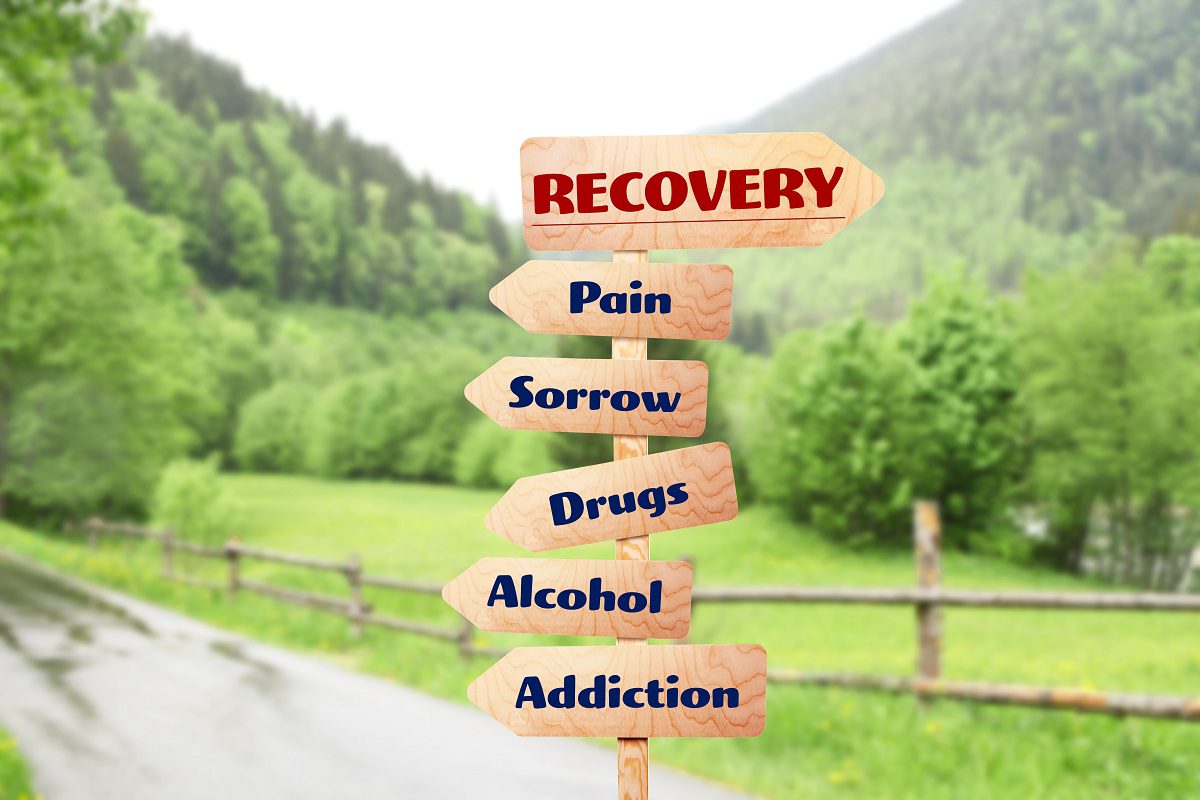The Science of Recovery and Addiction Treatment

There is often a misunderstanding between most people and other people who develop addictions to alcohol and drugs. A commonly held myth is that people abusing either of these substances could just stop whenever they wanted to but choose not to do so since they lack any willpower and choose to continue in immoral behaviors.
Another commonly held myth is that people with addictions do not need addiction treatment if they just quit “cold turkey.” However, simply stopping is never a good idea. The body and brain have undergone changes from the substance abuse. Simply stopping results in serious withdrawal symptoms that need to be managed through addiction treatment programs.
Sadly, the truth is an addiction is a complicated disease that affects people differently based on several different factors and influencers. Alcohol and drug chemically change how the brain responds to different stimuli in such a manner that achieving the desired results requires more and more alcohol or drugs.
Addiction and the Brain
Alcohol and drugs affect the brain in different ways depending on the substance used and the frequency. Our brains are designed to release different chemicals in response to different stimuli. For instance, when we are happy and excited, the brain naturally releases dopamine, which is a chemical that makes us feel good.
With alcohol, the brain’s neurotransmitters are interrupted and that causes noticeable effects on how we process information and respond. Your speech can become slurred. You may feel dizzy or even sleepy. Your reflexes and responses are also slowed. You might even make poor decisions since your inhibitions are typically lowered.
With drugs, the brain’s neurotransmitters are also affected in various ways. Many drugs cause the brain to release dopamine which makes us feel good. Other drugs lower our inhibitions so we might say, act, or do things we would normally not, as in engaging in unsafe sexual encounters.
Over time, alcohol and drugs alter the way the brain functions and how chemicals are released. To compensate for the excess dopamine released, the brain naturally responds by lowering production of the chemical since it is tricked into believing there is an excess of it.
For instance, once dopamine supplies are depleted, it will require drinking more alcohol or using more of the drug to achieve the same effects. Essentially, this is how addiction begins for many people.
The Body and Addiction
Alcohol and drugs also have an affect on the body. They can make you feel numb, alter cellular functions, and affect bodily functions. Over time, the body becomes dependent on the substance in order to function “normally.” Without it, the person starts to experience withdrawal symptoms such as:
- Pain
- Nausea
- Body Aches
- The “Shakes”
- Diarrhea
- Vomiting
As you can imagine, most people don’t want to experience these symptoms, so they continue drinking alcohol and using drugs. By continuing to use the substance, they can avoid the physical side effects of withdrawal.
Addiction Treatment Processes
Addiction treatment involves treating both the psychologic and physical addiction aspects of the disease. It is important to remember that alcohol and drugs affect both the brain and body, so treatment programs must also treat the brain and body.
The Body’s Process of Detoxing
The first step of treatment requires the person to undergo detoxing. Detox must be medically supervised so it can be successful. People who attempt to detox on their own by going “cold turkey” are rarely successful and could have serious issues that result in needing immediate medical care.
Withdrawal is often an uncomfortable and painful process. The body must free itself of the physical addiction of the substance and impurities it leaves in the body. People going through the withdrawal process often feel ill, sweat, have chills, and are physically week.
Mentally, the person can feel sad and depressed. As their brain returns to normal functioning, there can be alterations in moods and mood swings. One can feel depressed one minute and angry the next. The person might try to reason with themselves and others that if they just use a little then they will stop.
This is why physical withdrawal needs to be medically supervised by a trained professional. A professional is able to monitor the withdrawal and take appropriate steps to keep the person safe during the processes, including safe from hurting themselves.
The detox process can last from a few days to several weeks depending on the level of addiction and substance used.
The Mind’s Process of “Detoxing”


Once a person has been physically detoxed from alcohol and drugs, the next step is to address the psychological detoxing process. Physical detox doesn’t address the psychological aspects of addiction.
This is why “detoxing” the mind is the next step in addiction treatment programs. It is important for the person to think about why they became addicted by reviewing their behaviors and life events.
For some people, addiction is a result of a prior traumatic experience they have not dealt with but, rather, turned to alcohol or drugs instead. For other people, they could have been exposed to addiction during their childhood years, which can influence their future attitudes toward alcohol and drugs.
Even our genetics can play a role in developing addictive behaviors. If someone has parents or grandparents who had a history of addiction illness, there is a likelihood that genetic factors could cause one to have a predisposition for addictive tendencies.
As such, “detoxing” the mind is a gradual process that takes time. Ideally, a person should continue with addiction treatment for at least 90 days to reduce the risks of future relapses, Remaining in a program for longer can be beneficial, especially if the person has not yet dealt with all their underlying issues and causes for their addiction.
The Science Behind Addiction Treatment Programs
There is a reason addiction treatment programs are structured and follow specific steps. Much scientific study and research has been conducted over the years to determine how the body and mind react to alcohol and drugs, as well as the detoxification processes once the substance is removed.
The thing to remember is there is no “fast-track” to recovery. It is a slow and steady process that continues each day and every day, even after an addiction treatment program has been completed.
Treatment is much more than detoxing the mind and body. For many people, treatment also involves learning new healthy habits, including:
- How to prepare healthy meals.
- Eating regular meals at set times.
- Establishing a schedule and routine.
- Exercising the body and mind.
- Learning about “triggers” and how to address those in day-to-day life to avoid relapse.
- Knowing when to seek support, help, and guidance to avoid relapse.
- Learning how to avoid situations that could expose one to “triggers” or environments that would result in relapse.
- Reestablishing healthy relationships with friends and family.
- Learning how to live clean and sober one day at a time.
It is essential to remember that what works for one person may not work for the next. Therefore, addiction treatment programs are customized to fit the specific needs of each individual.
Some people do well with outpatient programs where they continue to work, live at home, and interact with friends and family. Other people do better in inpatient programs where they can be isolated from friends and family and focus entirely on their recovery.
Yet others do well in special sober living homes in Florida. This type of home is where people can start to rebuild their lives while still receiving addiction treatment and support.


Most importantly, you need to remember that until someone is ready to ask for and seek help for their addiction, treatment programs will not always be successful. The person must want to change and overcome their addiction.
Additionally, you cannot force someone who isn’t ready to take the first steps on the road to recovery. You can only be there for them when they are ready.
For further information about addiction treatment and sober living in Florida, please feel free to contact RECO Institute at 561-665-5925 today!















